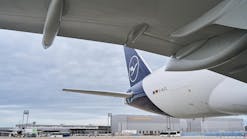This article is part of a series explaining the various types of IATA CEIV certifications.
The safe and efficient transport of lithium batteries, including by air, is becoming increasingly important, says Yaniv Sorany, principal, International Air Transport Association (IATA) Certification.
Lithium batteries have become the preferred energy source for a wide variety of consumer goods, and according to IATA, these batteries represent one-third of the dangerous goods transported by air. The number of lithium batteries shipped by air continues to rise. The global lithium-ion battery market size is projected to grow from $41.1 billion in 2021 to $116.6 billion by 2030.
Due to their propensity to overheat, lithium batteries can pose a substantial hazard in aviation. This overheating can trigger a phenomenon known as thermal runaway, leading to the emission of smoke, the ignition of flames, and in some instances, even explosions. Such occurrences are particularly perilous during a flight. The IATA Center of Excellence for Independent Validators Lithium Batteries (CEIV Li-batt) certification program is instrumental in helping mitigate these risks.
CEIV Li-batt certification, specifically named for lithium batteries, essentially covers best practices and safety measures for handling and transporting all types of batteries, says Sorany. Li-batt certification demonstrates that shippers, freight forwarders, cargo handling facilities and airlines adhere to relevant transport regulations and showcases their proficiency in managing and transporting battery products, he says.
“CEIV Li-batt assures shippers that lithium battery shipments are transported securely, efficiently, and in compliance with regulations,” he says. “Additionally, it raises awareness of batteries as hazardous goods and fosters enhanced collaboration and trust among stakeholders.”
Shipments of lithium batteries (alone or with finished products) must comply with well-established global safety standards for how they are manufactured, tested, packed, marked, labeled and documented. These requirements are a key element of the IATA Lithium-Battery Shipping Regulations (LBSR) and of the IATA Dangerous Goods Regulations (DGR), which combine regulatory and operational input from industry and government experts.
In 2021 CEVA Logistics achieved the first CEIV Lithium Battery certification for its operations at Hong Kong International Airport and at Amsterdam Schiphol Airport, following an extensive period of piloting.
Today CEIV Li-batt has 96 certified entities, including 14 airlines and 11 ramp handlers.
Regarding other classes of dangerous goods, Sorany says IATA continuously analyzes industry challenges and concerns related to the transportation of dangerous goods and explores solutions / services that could help mitigate risk.
“In the future this could include a certification to cover the full spectrum of dangerous goods transported by air,” he notes.









